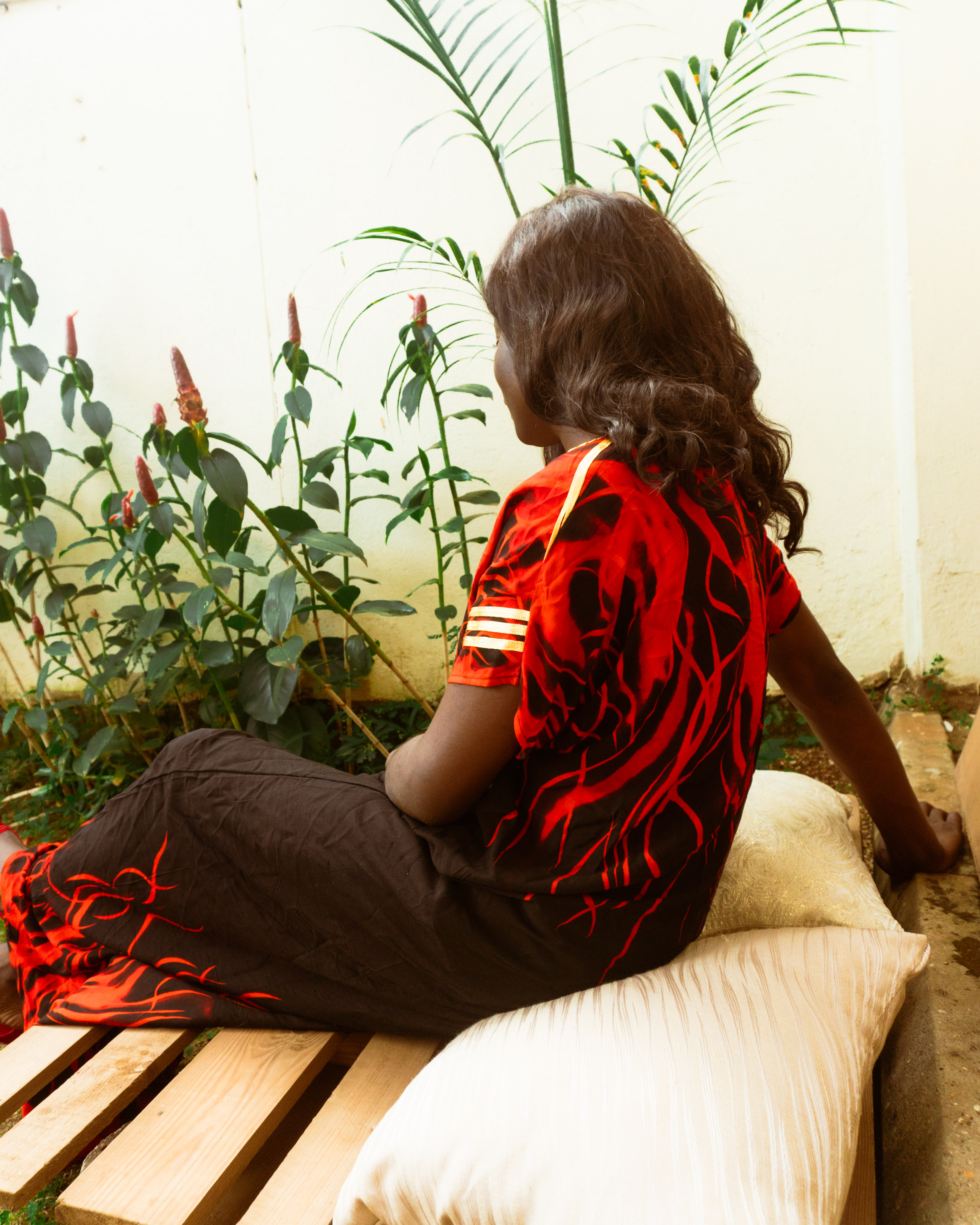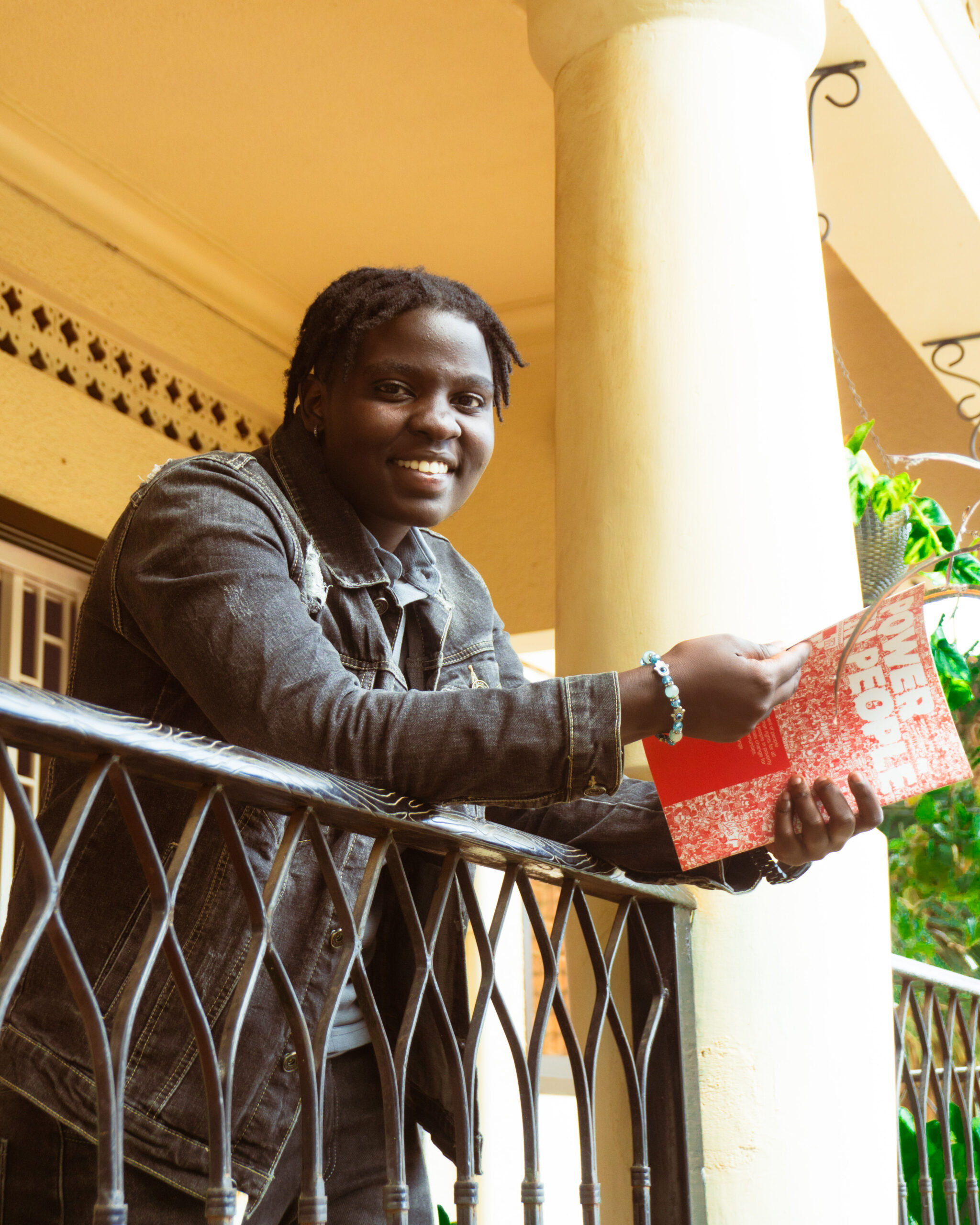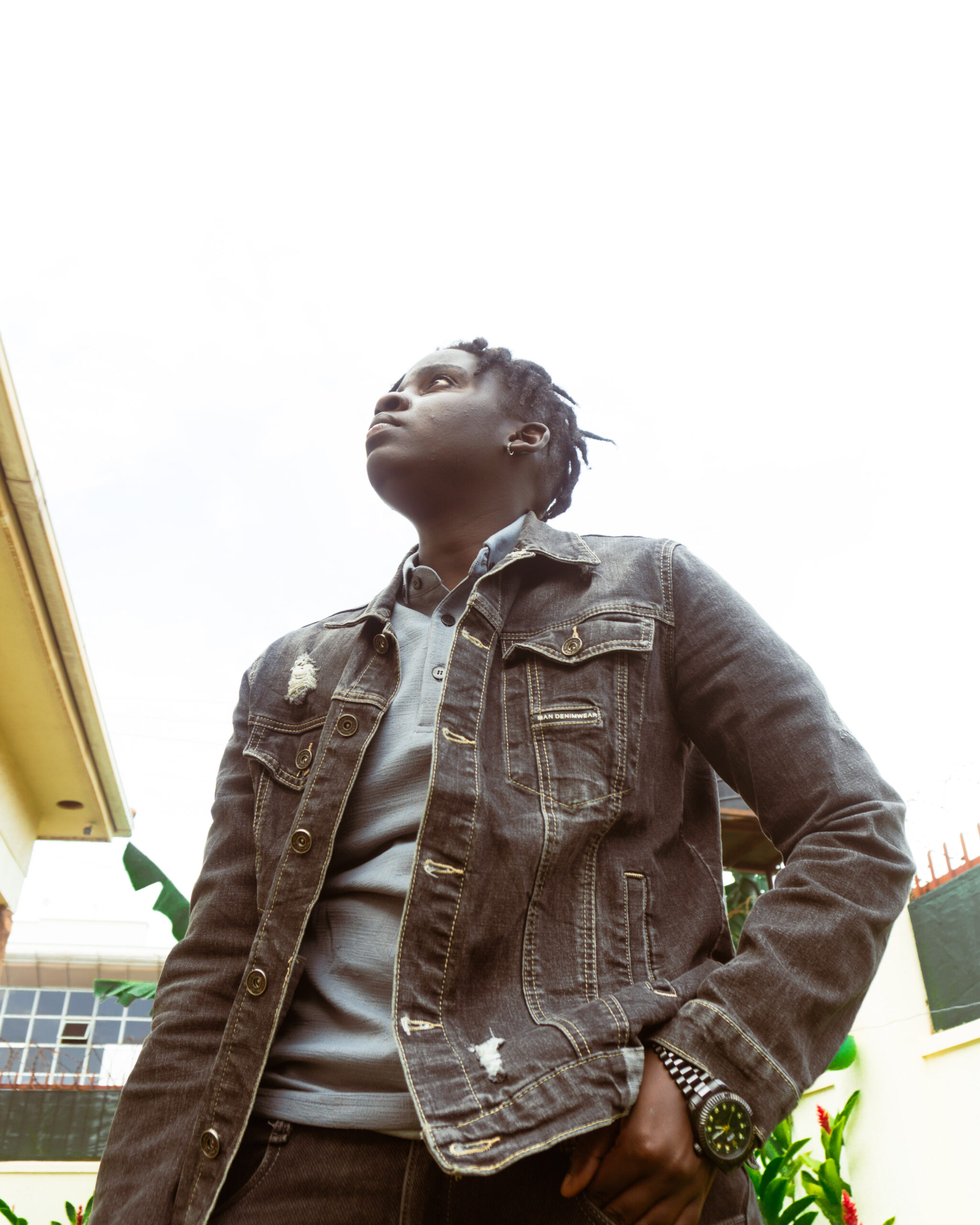Kampala, Uganda (Minority Africa) — In March 2023, Uganda passed one of the harshest anti-homosexuality laws in the world, making life even more terrifying for so many of my queer siblings. In 2024, the Constitutional Court upheld the Anti-Homosexuality Act, and now the fight for justice continues in Uganda’s Supreme Court.
Nonetheless, even in these difficult times, there are still stories of courage and hope. This photo essay shares the journeys of three incredible LGBTQ+ Ugandans in the aftermath of the law.
First, there’s Aggy, who bravely fights for the rights of LGBTQ+ people and took part in challenging the Anti Homosexuality law in court. Then there’s Pastress Agy, a transgender woman who advocates for LGBTQ+ people to be included and accepted in churches and religious spaces. Pastress Agy is also a pastor and religious leader at an affirming ministry in Kampala. And finally, there’s Jerome, a transgender man who uses art and poetry to express himself.
These three people show us how LGBTQ+ Ugandans are finding ways to be resilient, to show up for each other and for themselves, in the face of a system designed to eradicate them.
Pastress Aggy
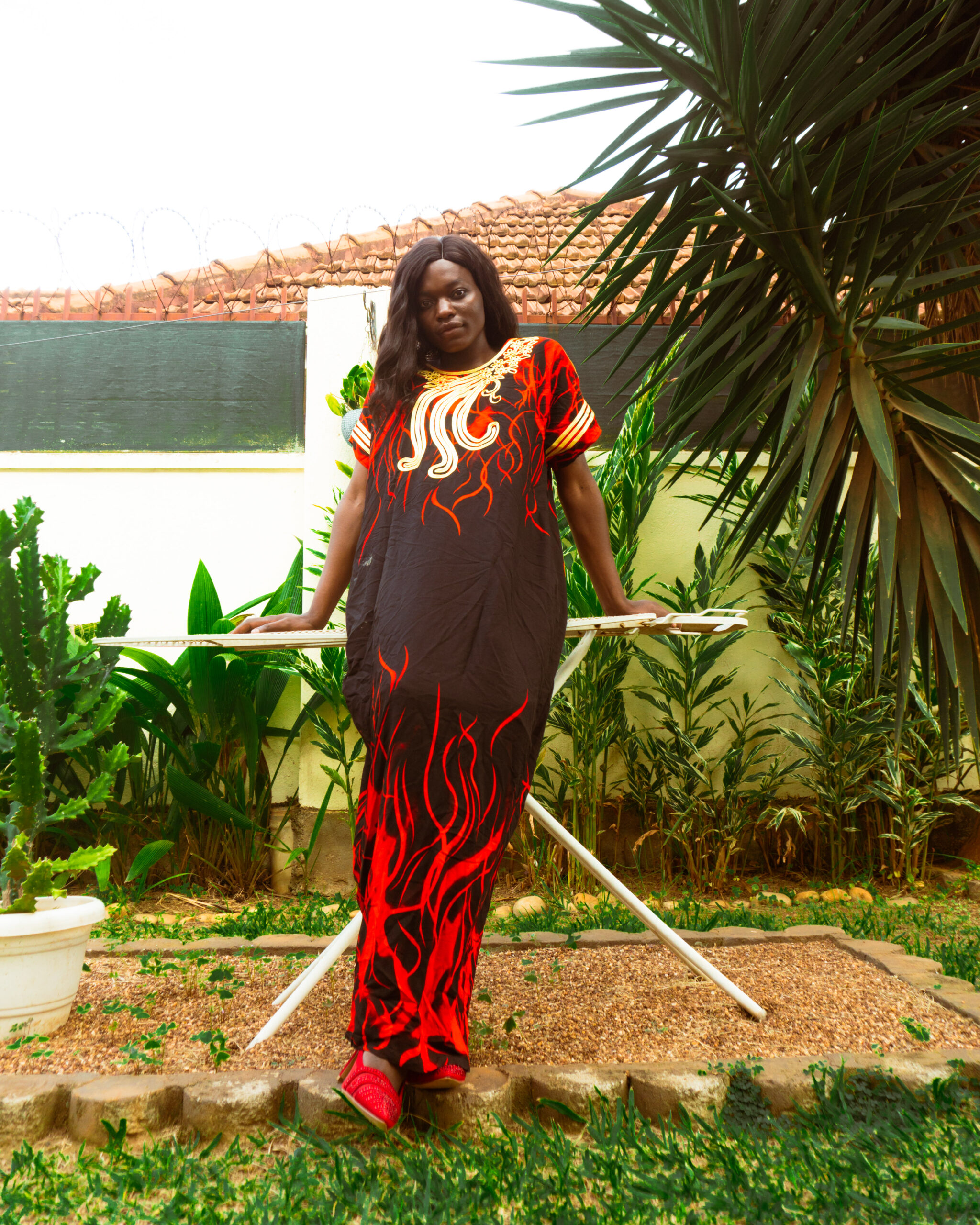
“Before the law was passed, I could still move around without constant fear. But now, I’m scared for my life. I feel like a prisoner in my own home, staying indoors as much as possible. Even where I live, I can only stay for short periods before I have to move again, afraid someone might discover who I am. If they do… well, that’s a whole other ordeal.
Things have really gotten tough. Just a few months ago, I was sexually harassed, and I had no one to turn to because of the law. I couldn’t go to the police, and even at the hospital, I had to lie to the doctors, afraid they’d report me. So, I had to endure everything alone. Meanwhile, the person who did this to me is out there, living freely, while I carry the memory of that experience every single day.
Right now, survival means staying hidden, keeping a low profile. If we’re all gone, who will be left to continue the fight? At least by hiding, there’s a chance to return and keep fighting another day. We’re better off alive and in hiding than dead.”
Jerome
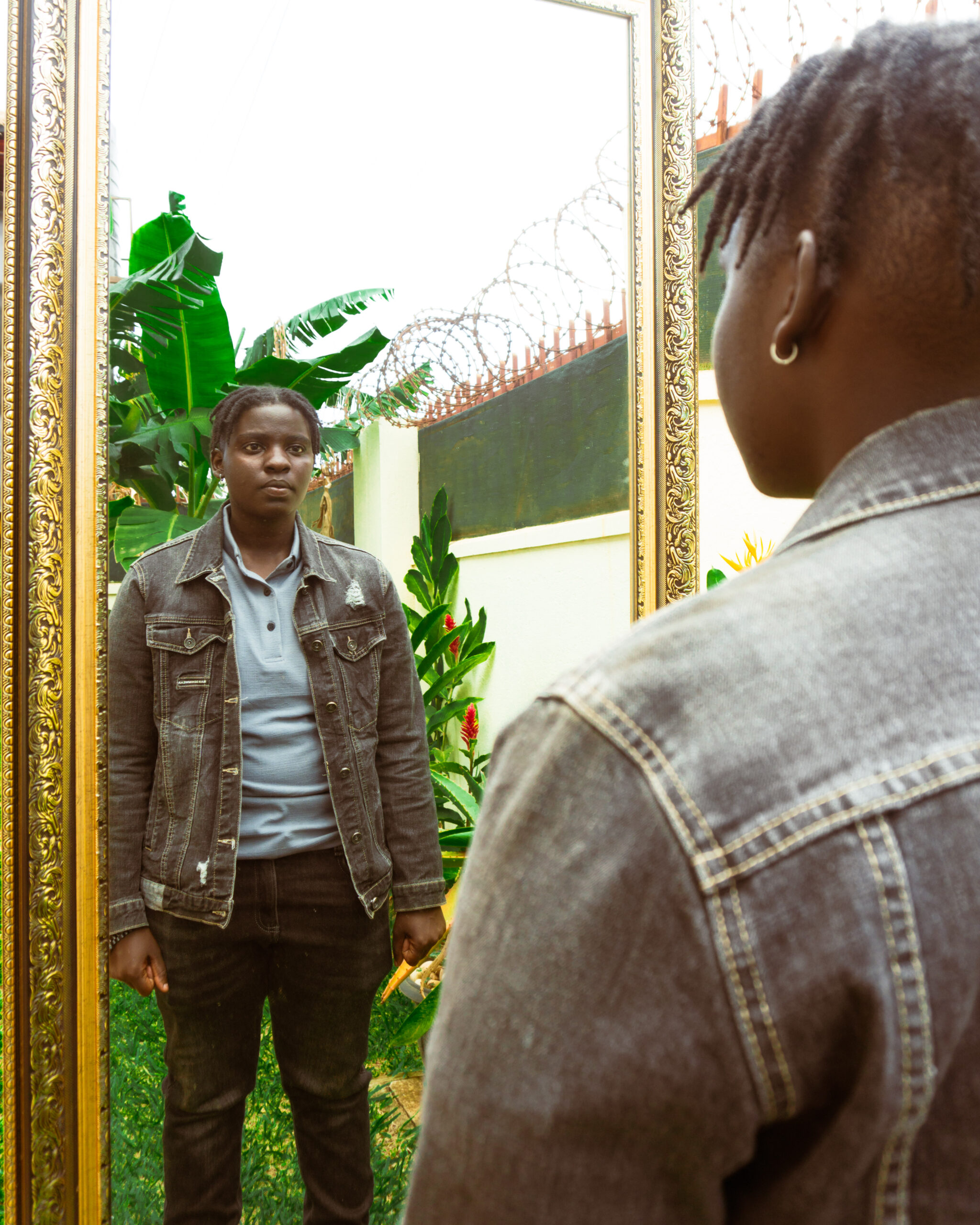
“Ever since the law was passed, my dysphoria has intensified—it’s multiplied fourfold. I used to wear just one binder, but now I wear two, sometimes three, just to make my chest as flat as possible and be able to pass convincingly. I had a place rented in Nansana, but the landlord started blackmailing me, saying they knew I wasn’t a man and threatening to report me for renting under a male name. I had to leave and find a place in Masanafu.
It hasn’t been easy. In some places, I’m constantly debating—should I present as a man, or should I say I’m a woman? Sometimes, I call myself a ‘female baller’—just a baller. Employment has been tough, too. I often feel like hiding away, but I need to work to survive. Before, I could do gigs for both straight and queer communities, but now I’m limited to queer spaces. Jobs are scarce, and payment isn’t always guaranteed. Even my savings are nearly gone.
But I keep trying. To survive, I wear three binders and hold my breath just to get through the day. Sometimes, I have to run to the bathroom to take one off just to breathe. The dysphoria is overwhelming—I think constantly about my body, wondering if I’d look more masculine if I lost weight. I even tried hormones from the black market, just to feel more like myself, but it led to severe side effects. Thankfully, I found someone knowledgeable who helped me get back on track.
The beauty of art and creativity is that they turn pain into something meaningful. Lately, I’ve been writing poems that come straight from the soul. One of them, ‘Best Days,’ starts with the line, ‘Are the best days just the ones that we survive?’ because, honestly, survival is all I’ve known. It’s a beautiful piece, and I hope to perform it someday. I’m also a graphic designer and a photographer. I returned to writing this year after barely writing at all last year. Going through all this has pushed me back to the page, to process everything.
As trans people, especially trans men, access to basic necessities like binders and hormones is still a huge challenge. Finding the right support, like an endocrinologist, to guide us safely through medical transitions feels almost impossible. I know there are other trans men or boys facing similar struggles—maybe they’re not creatives, but they still face dysphoria and transphobia every day. It’s all made worse by the law and the general environment around us.
Sometimes, I feel a heavy pressure comparing myself to other trans people on TikTok who seem to be thriving. They’ve had top surgery, they have kids, they’re living fully. And I think, ‘Where am I? Why am I so far behind?’ But I’m learning to remind myself to slow down. Everyone’s journey is different—mine isn’t Kyle’s, or John’s, or anyone else’s. I have to love myself first before looking for love or validation anywhere else.”
Agy
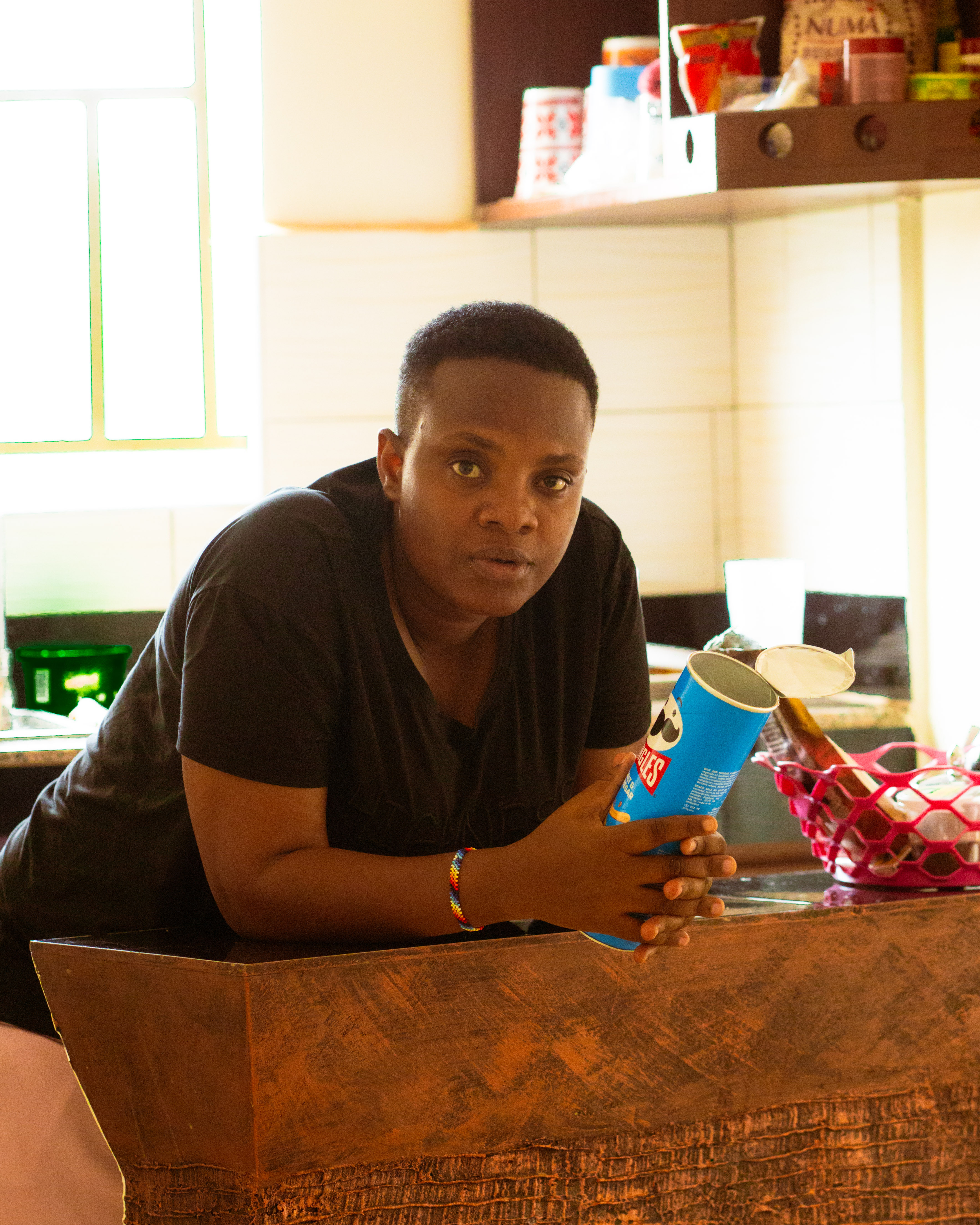
“As an activist, there’s never a moment I feel truly safe or ‘okay.’ Since the Anti-Homosexuality Act (AHA), and even before, we’ve faced constant attacks. It’s been this way for as long as I can remember—some days are quieter, others are intense. But since AHA, the discrimination has intensified.
Many people have been rejected by their families, assaulted, and some are still imprisoned. Every day brings new security challenges, both for those I serve and for myself. Life is dangerous for all of us.
We’ve had to shift to online meetings because stopping isn’t an option. It’s essential to keep reminding the community about staying safe, securing their health, and taking necessary precautions.
Through the Africa Queer Network, we’re hosting mental health sessions because so many are struggling. We also collaborate with various organizations, like CFE, HRAPF, Women’s Pro Bono Initiative, and shelters, to continue providing services. It’s harder now and resources are scarcer than in previous years, but we’re doing everything we can to keep the work going.
The only way forward is to keep fighting—for health, for life, and for our rights. No one has the right to judge us for who we are. Keep living and doing what feels right for you. Don’t let anyone tell you otherwise. Listen to your heart—if it feels positive or necessary, follow that inner guidance.
What motivated me to take part in the court proceedings? Resilience. You have to be ready to stand up, even if it’s risky. There’s fear of being attacked or arrested, but I’ve been attacked before, and while receiving treatment, I realized, ‘This is something we have to fight for.’ I know others are counting on me. They might think, ‘If Aggie gives up, who will fight for us?’ So for me, it’s time to step up and face the truth head-on.”
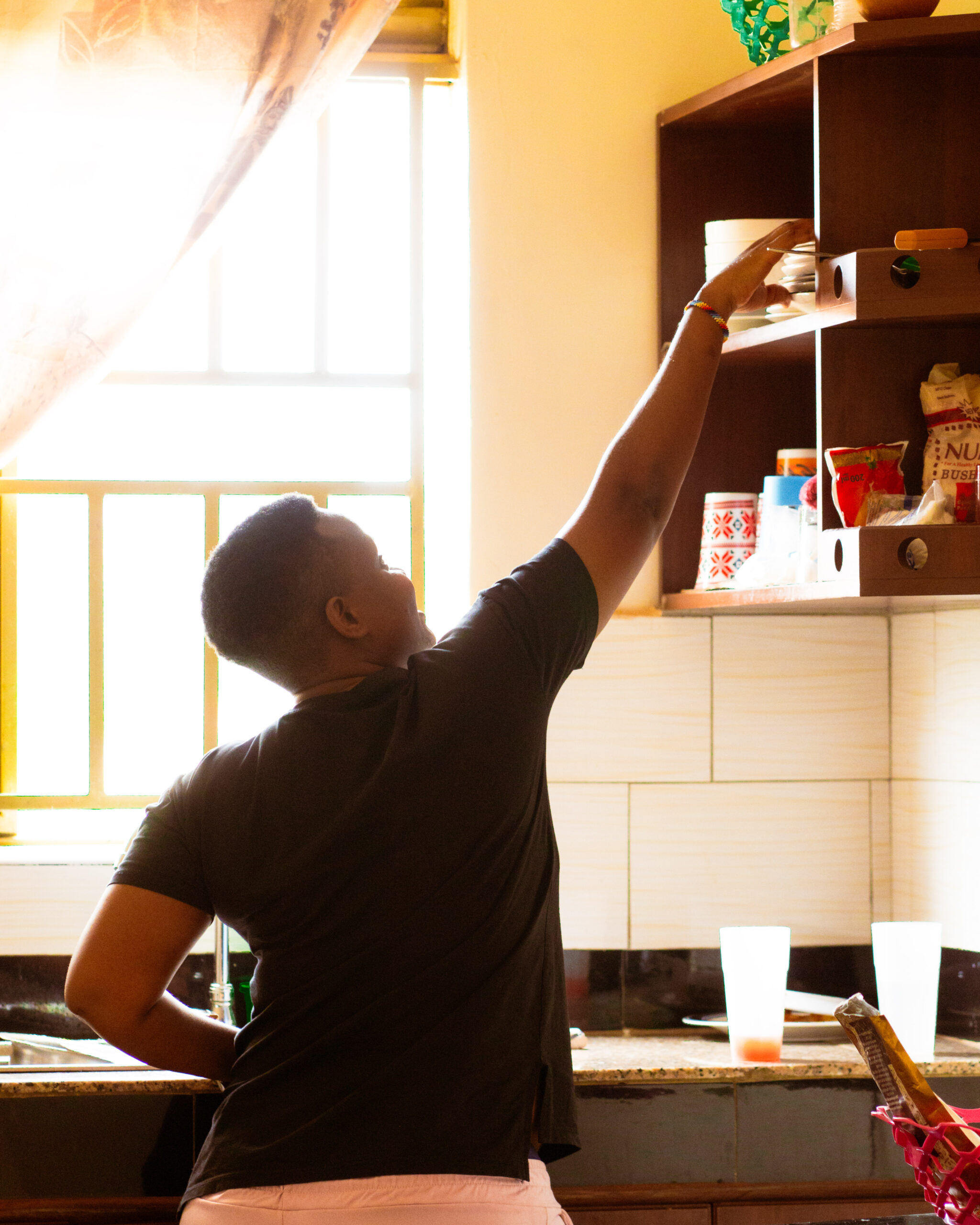

Edited/Reviewed by: Caleb Okereke and Sarah Nene Etim.

